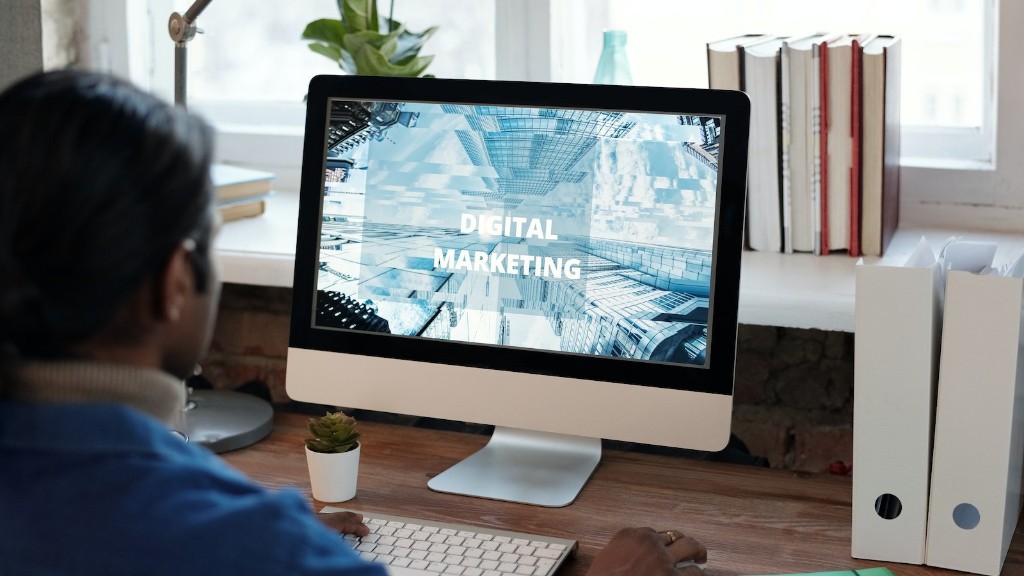An industrial marketing strategy is a comprehensive plan that helps companies identify and target key markets to generate new business opportunities. The main goal of an industrial marketing strategy is to improve company sales and profits by expanding into new markets or segments.
Industrial marketing strategies typically involve four main elements: market analysis, target market selection, product/service positioning, and marketing mix implementation.
Market analysis involves understanding the current state of the market, including key trends and dynamics. Target market selection involves choosing which markets to target based on market analysis. Product/service positioning involves creating a unique selling proposition for your product or service. Marketing mix implementation involves developing and executing a marketing mix that meets the needs of your target market.
Industrial marketing strategies are important for companies looking to grow their business. By taking the time to develop a comprehensive and effective industrial marketing strategy, companies can ensure that they are able to capitalize on new business opportunities and improve their bottom line.
A company’s industrial marketing strategy refers to the plans and actions it takes to promote its products or services to businesses and other organizations. The goal of an industrial marketing strategy is to generate more sales and grow the company’s market share.
There are many different types of industrial marketing strategies, but some common elements include market research, target market selection, product positioning, pricing, and distribution. Many companies also use trade shows, direct mail, and online marketing to reach their target markets.
What are the strategies for industrial marketing?
An industrial marketing strategy typically contains 7 core elements: positioning, website foundation, technology stack, content strategy, lead generation, pipeline management, and data analysis.
Positioning refers to how you position your company and products in the marketplace. This includes differentiating yourself from your competitors and clearly articulating your value proposition.
Your website foundation should be strong and stable, with a clear structure and easy navigation. Your technology stack should be robust and scalable, able to support your website and marketing campaigns.
Your content strategy should be designed to attract and engage your target audience. It should be informative and persuasive, leading to conversions.
Lead generation is the process of generating leads, or potential customers, for your business. This can be done through a variety of methods, such as online advertising, trade shows, and content marketing.
Pipeline management is the process of managing your sales pipeline, or the steps in your sales process, from initial contact to close. This includes tracking leads, nurturing prospects, and moving deals through your pipeline.
Data analysis is the process of analyzing data to extract insights that can be used to improve your business. This includes understanding your customer data, website data, and campaign data.
Industrial marketing, also known as business-to-business marketing, is the marketing of goods and services by one business to another. Industrial goods are those an industry uses to produce an end product from one or more raw materials.
Industrial marketing is a complex process that involves understanding the needs and requirements of other businesses, as well as the specific industry in which they operate. It also requires a deep understanding of the products and services being offered, and how they can be best utilized by the businesses that they are targeting.
The goal of industrial marketing is to build long-term relationships with other businesses, and to create value for them through the provision of goods and services that meet their needs. In order to be successful, industrial marketers must be able to effectively communicate the benefits of their products and services, and create customized solutions that meet the unique needs of their customers.
What is an example of industry marketing
The clothing manufacturer is using a business-to-business (B2B) marketing strategy, while the boutique store is using a business-to-consumer (B2C) marketing strategy. B2B marketing is when a company sells products or services to another company, while B2C marketing is when a company sells products or services to individual customers.
Industrial marketing is all about building trust with buyers in the market and convincing them to purchase products and services. In order to do this, businesses need to focus on creating a strong brand that buyers can rely on. This can be done through various marketing initiatives such as creating a strong online presence, developing relationships with key buyers, and providing quality products and services. By doing this, businesses will be able to build trust and credibility in the market, which will ultimately lead to more sales.
What is a real life example of industrial marketing?
The industrial market is a key part of the economy, as it provides the raw materials and products that businesses need to manufacture their own products. This market is made up of companies that sell steel, glass, wood, and other raw materials, as well as businesses that sell machinery or vehicles.
A basic industrial strategy is one that is directed towards a more efficient and optimal use of domestic resources. This is particularly important in our current circumstances in order to enhance the agricultural sector. Of course, some of our resources were developed specifically for this purpose and so this strategy will help to ensure that they are used to their full potential.
What is another name for industrial marketing?
The key difference between B2B and other types of marketing is that B2B marketing is focused on building relationships and providing value to other businesses, rather than simply selling products or services.
Some common examples of B2B marketing activities include:
-Developing partnerships with other businesses
-Attending trade shows and exhibitions
-Developing marketing collateral specifically for other businesses
-Undertaking market research on behalf of other businesses
Industrial marketing is quite different from normal marketing as it requires large orders and long-term relationships. This means that the first pitch and sale are often more complex. Given that businesses are made up of several individuals, this means that you have to impress multiple people with different bits of information. This can be quite challenging, but if done correctly, can be very rewarding.
What are the three types of industrial marketing
Industrial marketing can also be carried out in Business ServicesTypes of Industrial ProductMaterials & PartsCapital Items andSupplies and Services. By targeting businesses that provide these types of products and services, companies can effectively market their goods and services to a wider range of potential customers. By doing so, they can boost their sales and profit margins.
Digital marketing has been a game changer for many industries, but there are some that have seen particularly high returns on their investment. Law, retail, health, training and education, and automobiles are some of the top performers in this arena.
Digital marketing has allowed these industries to reach a wider audience more efficiently and effectively than traditional marketing channels. By engaging with their customers online, they have been able to build strong relationships and drive conversions.
The key to success in digital marketing is to have a well-defined strategy that takes into account the unique needs of your industry. With the right approach, you can achieve amazing results.
What is industrial marketing How does it differ from consumer marketing?
Industrial marketing and consumer marketing are two different types of marketing. Industrial marketing is when businesses market products or services to other businesses. Consumer marketing is when businesses market products or services to consumers. The main difference between the two types of marketing is market reach. Industrial marketing has a narrower and more constricted market reach than consumer marketing. This is because industrial marketing deals with businesses, which are a limited magnitude. On the other hand, consumer marketing has a wide and extensive market reach because it markets products and services to potential mass consumers.
Industries are classified as primary, secondary, tertiary, and quaternary based on their economic activities. Primary industries are those that extract or harvest natural resources (e.g. agriculture, fishing, and mining). Secondary industries are involved in manufacturing and processing raw materials into finished products (e.g. factories and mills). Tertiary industries provide services that support the other two sectors (e.g. transportation, storage, and communication). Quaternary industries are involved in knowledge-based activities, such as research and development or information technology.
What is the advantage of industrial marketing
Industrial marketing is a set of marketing activities directed at achieving specific objectives within the industrial sector. The main goals of industrial marketing are to increase sales, gain market share, and improve customer satisfaction.
Industrial marketing involves creating and maintaining relationships with customers, partners, and suppliers. It also includes managing the supply chain, developing and managing distribution channels, and providing customer support.
Industrial marketing is important because it contributes to the development of the whole company and the variety of its business areas. It provides long-term competitive advantages in the market and increases the effectiveness of the work inside the company due to the following common goal.
Industrial marketing management refers to the process of managing the marketing activities of an organization that are directed towards the industrial sector. This includes all the activities from product development to sale and distribution. The main aim of industrial marketing management is to create and deliver value to the customers through the effective use of marketing mix.
The different types of industrial marketing management are:
1. Product exchange: This type of industrial marketing management focuses on the exchange of products between the organization and the customers. This involves activities like product development, pricing, and promotion.
2. Information exchange: This type of industrial marketing management focuses on the exchange of information between the organization and the customers. This involves activities like market research and customer service.
3. Financial exchange: This type of industrial marketing management focuses on the exchange of financial resources between the organization and the customers. This involves activities like financing and investment.
4. Societal exchange: This type of industrial marketing management focuses on the exchange of value between the organization and the society. This involves activities like social responsibility and sustainability.
Service nature:
Industrial marketing management is a service-oriented activity. This means that the main aim is to provide value to the customers through the effective use of marketing
What are examples of industrial customers?
The term business customer or industrial customer refers to customers who purchase products or services to use in the production of other products. Business customers are typically industries such as agriculture, manufacturing, construction, transportation, and communication.
1. Industrial marketing is a type of marketing that businesses use to promote their goods and services to other businesses.
2. Industrial marketing is usually done through B2B (business-to-business) marketing, which is a type of marketing that promotes products and services from one business to another.
3. Industrial marketing can be used to promote a wide variety of goods and services, from raw materials to finished products.
4. Industrial marketing is an important part of the economy, and businesses that use it effectively can reap a variety of benefits.
What are industrial products with examples
Industrial products are materials and services used to operate a business. This can include everyday equipment for the operation of a business—like computers or printers—or items to manufacture products meant for ultimate use by the consumer.
There are four main types of marketing channels: Producer → Customer (Zero-level Channel), Producer → Retailer → Consumer (One-level Channel), Producer → Wholesaler → Retailer → Customer (Two-level Channel), Producer → Agent/Broker → Wholesaler or Retailer → Customer (Three-level Channel).
Final Words
An industrial marketing strategy is a plan that outlines how a business will market its products or services to industrial or commercial customers. The strategy should take into account the specific needs of the target market and the unique selling points of the business. It should also include a budget and a timeline for implementation.
There are a variety of industrial marketing strategies that businesses can use to reach their target audience. The most effective strategy will vary depending on the industry, product, and target market. However, some common strategies used in industrial marketing include trade shows, online marketing, and direct mail. By carefully selecting the right strategy and executing it effectively, businesses can successfully reach their target market and achieve their marketing goals.





